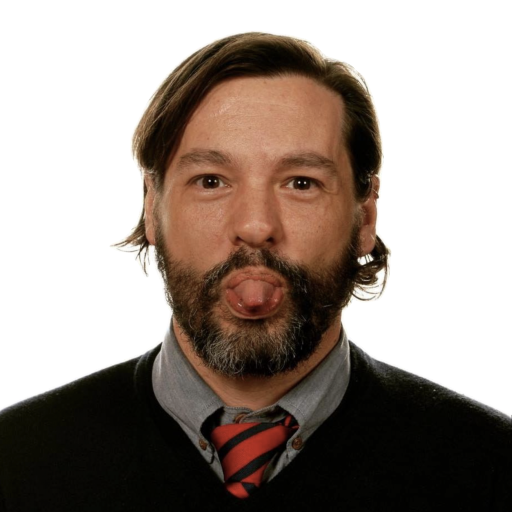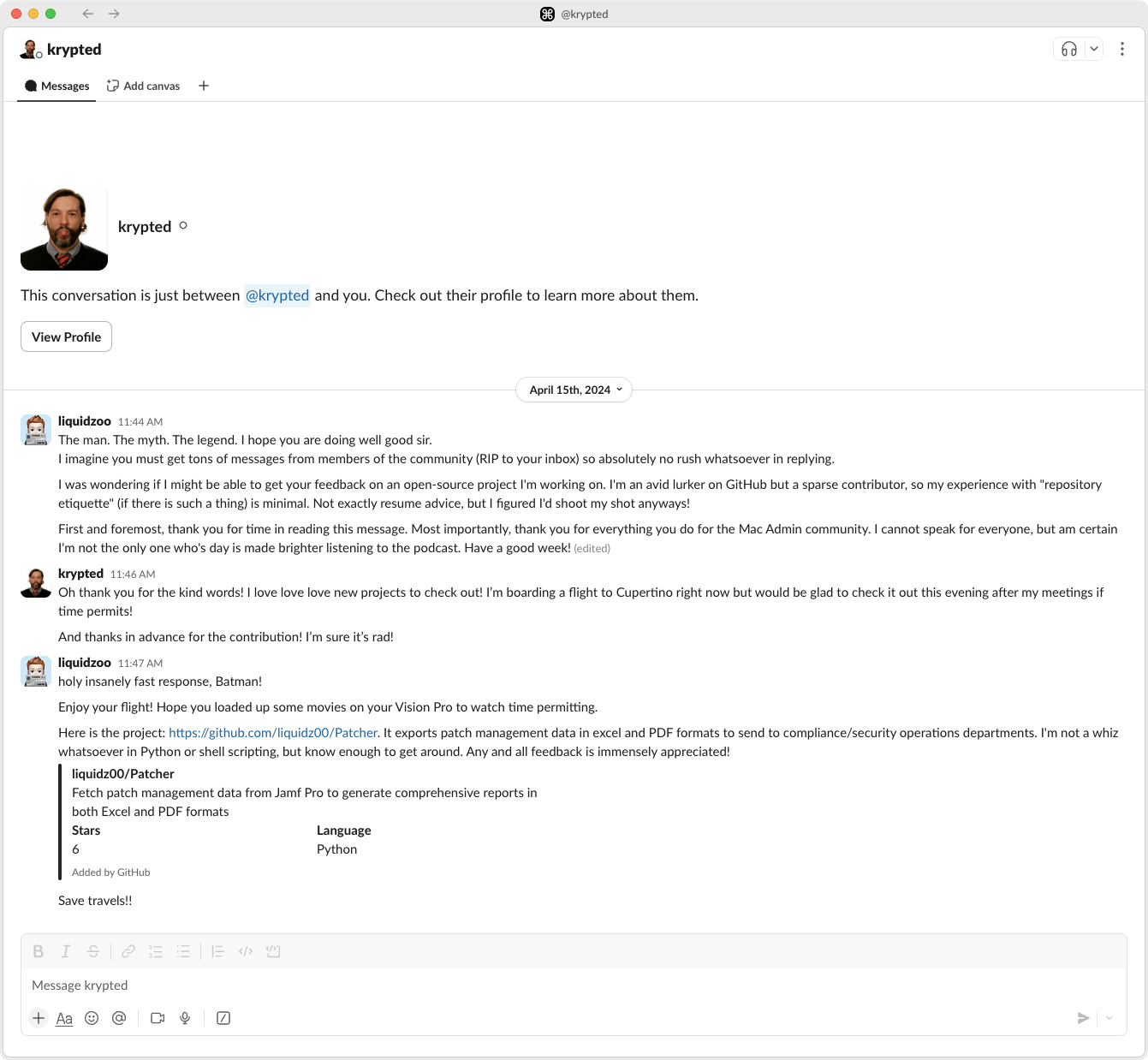The Edge Methodology - Leading with Curiosity and Courage
 Charles Edge (@krypted) profile picture
Charles Edge (@krypted) profile picture
In the MacAdmin world, few names command the kind of respect Charles Edge does. Not just for his technical expertise, but for his relentless curiosity and generosity. After his unexpected passing in 2024, I found myself reflecting on a behavior I learned through Charles’s actions. A mindset I’ve come to call the Edge Methodology. It’s not a framework or a management technique in the traditional sense. It’s a response to fear. A refusal to fake confidence in things not yet understood. And it’s inspired by the way Charles lived: by digging in, learning with humility, and lifting up others in the process.
The Problem: Fear of Not Knowing
At some point in our careers, many of us have worked in environments where saying “I don’t know” felt like admitting defeat. Where curiosity was mistaken for incompetence, and asking questions risked being seen as unqualified.
I’ve definitely been there.
In those spaces, people would often bluff their way through technical conversations. Not out of arrogance, but out of fear. Fear of being judged, of being excluded from the table, or of being seen as less capable than they truly were. It fosters a culture where mistakes are hidden, growth is stifled, and silence replaces collaboration.
Being in that environment over time exposes you to a dangerous lesson: never admit you don’t know something. Just figure it out when no one’s watching, or fake it until you do.
The Edge Approach
Charles Edge didn’t operate that way. Quite the opposite.
He’d jump into the deep end of a topic, even if he didn’t know how to swim yet. He’d document the journey, share what he learned, and bring the community along with him. He normalized the idea that not knowing is not a flaw. It’s the first step toward learning.
During my time at Apple, there was a phrase I often heard: “I don’t know. Let’s find out together.”
It may sound cheesy, but that mindset felt revolutionary at the time. And quite honestly, it still does.
Charles embodied that phrase. He never pretended to have all the answers, but that never stopped him from exploring the questions. And more importantly, he made it safe for others to do the same.
A Personal Anecdote
I only interacted with Charles once. A single direct message thread on the MacAdmins Slack. I had just started working on Patcher and was cautiously optimistic about it. On a total whim, I decided to reach out to Charles, fully aware the likelihood of a response was slim at best. I knew how busy he was, how many people were competing for his attention, and how trivial my little project must have seemed in the grand scheme of things.
He responded within two minutes.
Not just that, he was kind, interested, and supportive. His willingness to check out the project - that simple gesture - meant the world to me. He didn’t owe me anything. But he gave his time anyway.
He never got the chance to follow up. He passed away four days later.
As brief as this exchange was, it stuck with me. It acted as a reminder that kindness doesn’t have to be extravagant to be impactful. Sometimes, a short message is enough to shift someone’s entire perspective.
Adopting the Edge Methodology
I’ve tried to embody the Edge Methodology ever since.
I’m certainly not perfect. I’m constantly learning to admit when I don’t know something. Out loud, not just in my head, and without shame. I choose to investigate, to ask questions, and to share what I uncover, even when it’s not perfect. Every day, I try to replace fear with curiosity, and insecurity with growth.
When others come to me with questions, I try to meet them where they are. Not where I think they should be. Because that’s what Charles did. He met people with kindness. He made space for them to learn without judgment.
This shift in my mindset did not happen overnight. I still catch myself hesitating sometimes. But I remind myself: I’m not here to impress anyone with what I know. I’m here to learn, and to help others do the same.
Practice It
Charles Edge left behind a legacy of technical brilliance. Most importantly, a legacy of empathy, humility, and curiosity. The Edge Methodology is my way of honoring that legacy.
So dig in.
Ask questions.
Admit what you don’t know.
Learn something new.
It may just end up being what you become passionate about.
Resources
If you’d like to learn directly from Charles, you still can. I highly recommend the book Apple Device Management, co-authored by Charles and Rich Trouton.
I also find myself still listening to some older episodes of the Mac Admins Podcast once I’ve caught up with the latest episodes. And last but not least, if you haven’t joined the MacAdmins Slack yet, I’m not sure what you’re waiting for.
